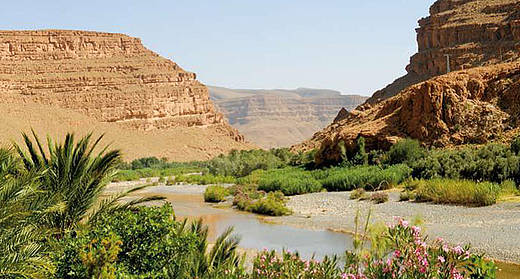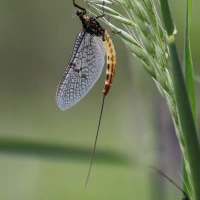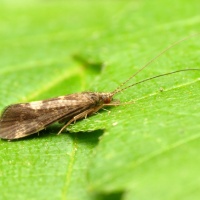Day 4 at the IUCN Congress: Sharing Nature’s Benefits for All
People and nature. That was the theme of the day at the IUCN congress. Specifically, how best to share the benefits of nature for all was the topic of conservation. Freshwater also received attention, with a report describing the threats to freshwater biodiversity in Northern Africa.
According to Gonzalo Oviedo, IUCN Special Adviser for Social Policy, “Everybody in the world, in one way or another, depends on nature … Now the problem is that in the world not everyone enjoys the same benefits of nature.” He lists food insecurity, drought and degraded environments as examples of where this type of inequality exists with many indigenous and poorer, vulnerable communities most at risk. Sustainability, he argues, is not just about “counting species or measuring the flow of water”, but about how all people can enjoy the benefits of nature, now and in the future.

Typical freshwater ecosystem in Northern Africa. Photo courtesy of IUCN.
While the focus of the day was on ensuring that everyone shares in the benefits of nature, there was still plenty of discussion about freshwater issues. One of the headline messages of the day was the dire status of freshwater biodiversity in Northern Africa with a report released during a press conference. The report showed that 28% of all freshwater species in Northern Africa are regionally threatened with extinction. Furthermore, there are many species that are endemic to North Africa and almost half of these (47%) are faced with extinction, meaning once they are gone, they will be found nowhere else in the world. The worst effected species are freshwater molluscs and fish with 45% and 27% of species threatened with extinction, respectively.
Water is a precious resource in Northern Africa, so the oases and few rivers in the region are under increasing pressures. The main pressures identified in the report are habitat loss and destruction and pollution.In addition, climate change is likely to play a factor as increased frequency and severity of weather events such as droughts will have significant adverse affects on freshwater biodiversity. For more on the threat facing the remarkable oasis ecosystems of North Africa, see here.

The Siwa Oasis, Egypt. Photo courtesy of IUCN.
Freshwater also featured in several other forums including a motion recognising the human right to water, a discussion on the challenges of managing water resources in the Himalayas, and a proposal to implement an ecosystems approach to water resources management water.
A particularly interesting approach to conserving freshwater ecosystems that was discussed was the use music, art and stories to explain and connect the science and protection of watersheds with indigenous communities in North and South America. It is also being used as way to represent the spirit of the river in the context of the conservation of the watershed.
Although water did not feature explicitly in much of the discussions about sharing the benefits of nature, freshwater conservation was again on the agenda at the IUCN congress. Watch here for an update on freshwater-related developments at the congress tomorrow.














